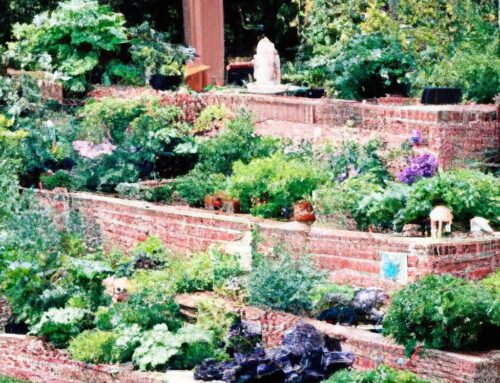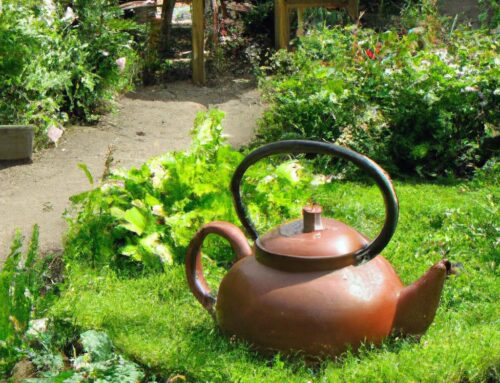In a world where chemicals dominate our food supply, organic gardening offers a refreshing alternative. By cultivating your own chemical-free oasis, you can not only nourish your body with fresh, healthy produce but also contribute to a more sustainable and environmentally-friendly future. In this article, we will explore the basics of organic gardening and provide you with the tools and knowledge needed to embark on your chemical-free gardening journey.
Table of Contents
- Understanding the Benefits of Organic Gardening
- Key Principles of Chemical-Free Gardening
- Implementing Natural Pest Control Methods
- Creating a Sustainable and Healthy Garden Environment
- Q&A
- In Summary
Understanding the Benefits of Organic Gardening
Organic gardening is a sustainable and environmentally friendly way to grow fruits, vegetables, and herbs without the use of synthetic chemicals. By embracing this natural approach, gardeners can reap a host of benefits for both themselves and the planet. One of the key advantages of organic gardening is the production of healthier and more nutritious produce. Without the use of chemical pesticides and fertilizers, fruits and vegetables grown organically tend to be higher in essential vitamins, minerals, and antioxidants.
Additionally, organic gardening promotes biodiversity and supports natural ecosystems by fostering a healthy balance of beneficial insects, birds, and microorganisms in the garden. By avoiding harmful chemicals, organic gardeners protect pollinators such as bees and butterflies, which play a vital role in crop production. Overall, choosing to go chemical-free in your garden not only benefits your own health but also contributes to the preservation of the environment for future generations.
Key Principles of Chemical-Free Gardening
When it comes to chemical-free gardening, there are several key principles to keep in mind to ensure a successful and sustainable garden. One of the first principles is to focus on building healthy soil. By nourishing the soil with organic matter such as compost and mulch, you can create a thriving ecosystem for your plants to grow without the need for chemical fertilizers.
Another important principle is to encourage biodiversity in your garden. Plant a variety of flowers, herbs, fruits, and vegetables to attract beneficial insects and pollinators. This natural pest control method can help keep harmful insects at bay without the use of chemical pesticides. Embracing these will not only benefit your plants but also the environment as a whole.
Implementing Natural Pest Control Methods
When it comes to maintaining a lush and healthy garden, natural pest control methods can be a game-changer. By opting for chemical-free solutions, you not only support a healthier environment but also ensure the safety of your plants, pets, and family. One effective way to implement natural pest control is by introducing beneficial insects to your garden. Ladybugs, lacewings, and parasitic wasps are great allies in combating common garden pests like aphids, caterpillars, and mites.
Another eco-friendly approach is companion planting, where certain plants are grown together to deter pests or attract beneficial insects. For example, planting marigolds alongside tomatoes can help repel nematodes, while attracting pollinators like bees and butterflies. Additionally, using organic sprays made from ingredients like neem oil, garlic, or peppermint can effectively control pests without harming beneficial insects or polluting the soil. By adopting these natural pest control methods, you can create a thriving garden that’s in harmony with nature.
Creating a Sustainable and Healthy Garden Environment
One of the key elements in is by implementing organic gardening practices. By going chemical-free, you can promote a more balanced ecosystem in your garden, supporting beneficial insects and wildlife while reducing the harmful impact of synthetic pesticides and fertilizers on the environment. Here are some basics on how to transition to an organic gardening approach:
**Benefits of Organic Gardening:**
- Improves soil health and fertility
- Promotes natural pest control through beneficial insects
- Reduces the risk of exposure to harmful chemicals for you and your family
Tips for Going Chemical-Free:
- Start by building healthy soil with compost and organic matter
- Choose disease-resistant plant varieties
- Practice crop rotation to deter pests and diseases
- Use natural pest control methods like insecticidal soaps, neem oil, and companion planting
Q&A
Q: What is organic gardening?
A: Organic gardening is a method of cultivating plants without the use of synthetic chemicals and pesticides.
Q: Why should I choose organic gardening?
A: Organic gardening promotes healthier soil, plants, and environment as it avoids the harmful effects of synthetic chemicals on ecosystems.
Q: What are the basic principles of organic gardening?
A: The basic principles of organic gardening include building healthy soil, practicing crop rotation, using natural fertilizers and pest control methods, and promoting biodiversity.
Q: How can I start my own organic garden?
A: To start your own organic garden, begin by testing your soil, selecting organic seeds and plants, and creating a compost pile for natural fertilization.
Q: Is organic gardening more labor-intensive than traditional gardening?
A: While organic gardening may require a bit more effort upfront, the long-term benefits of healthier soil and plants make it a worthwhile investment of time and energy.
Q: What are some common challenges of organic gardening?
A: Common challenges of organic gardening include managing pests and diseases without chemicals, maintaining proper soil fertility, and dealing with unpredictable weather patterns.
Q: Can I still have a successful garden without using chemicals?
A: Yes, with proper planning and care, it is possible to have a successful garden without relying on synthetic chemicals. By implementing organic gardening practices, you can cultivate a thriving and sustainable garden.
In Summary
As you embark on your organic gardening journey, remember that the beauty of growing your own food lies not only in the health benefits it provides but also in the satisfaction of knowing exactly what goes into the fruits of your labor. By following these basic principles of chemical-free gardening, you can create a sustainable and eco-friendly oasis in your own backyard. So go ahead, dig in, and watch your organic garden flourish!





